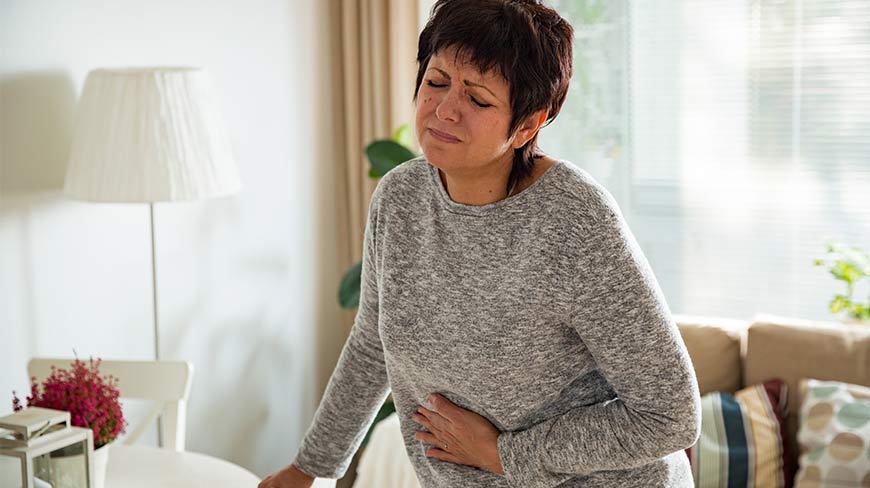6 Tips for Living with Crohn’s Disease
Taking your medications may be the first line of defense against your symptoms of Crohn’s disease, but there are additional steps you can take every day to help your medications work better, control your symptoms, and decrease your chances of a flare-up.
And it might surprise you to know that although diet is a huge part of fighting back against Crohn’s, it’s not your only defense. Other lifestyle choices can affect your symptoms of Crohn’s, as well. Sometimes a single change can have a major impact.
Exercise
Staying active, in general, promotes better health, increases energy, and strengthens the immune system. It can also help the digestive tract work better and has been proven to improve depression and anxiety, both of which are common with a chronic disease like Crohn’s.
Quit smoking
Smoking is linked to inflammation and can exacerbate symptoms of Crohn’s disease. In fact, smokers are more likely to develop Crohn’s in the first place, and then tend to have more flare-ups and need more treatment than non-smokers. Smoking also increases your risk of developing other health problems at the same time.
Avoid alcohol
Alcohol can trigger or worsen the inflammation in your gastrointestinal tract. When you’re already experiencing inflammation, alcohol can make your symptoms worse and increase your risk of complications. It may also interact with your medications.
Manage stress
Manage your stress or it will manage you (and aggravate your symptoms). Stress can trigger flare-ups and make symptoms worse. Managing stress can help not only your symptoms of Crohn’s, but every aspect of your life. Good first steps are getting enough sleep and exercise; both will help lower your stress level.
In addition, stress management techniques like biofeedback, breathing exercises, yoga, and mindfulness meditation can help you learn to control your responses to stress and minimize the negative effects on your body.
Check your diet
Diet doesn’t cause Crohn’s disease, but certain foods can make symptoms worse. Your food triggers might be different from someone else’s, so if you’re unsure which foods are triggering your symptoms try keeping a food diary. By noting what you eat and how you feel afterwards, you can pinpoint triggers.
In general:
- Avoid common triggers – Dairy, caffeine, and spicy foods are common triggers.
- Cut back on fat – If your small intestines have inflammation, you might pass fat instead of absorbing it efficiently. This can make diarrhea worse.
- Decrease fiber – While fiber is an important part of a healthy diet, there might be times when it can make your symptoms worse. If you’re having active symptoms, it might help to cut down your fiber intake.
- Eat smaller meals – The inflammation and symptoms of Crohn’s disease may leave you with little to no appetite. You may not feel like eating, but you still need nutrients to function and to heal. You might find it easier to eat five to six small meals or snacks per day, instead of two to three large meals.
Drink enough water
Inflammation in your gut can make it harder for your digestive tract to absorb water, putting you at risk for dehydration. And, the danger for developing dehydration is especially high if you’re experiencing diarrhea.
Other beverages may be tempting, but sugary drinks can be irritating, caffeine can make diarrhea worse, and carbonation can cause gas. Your best choice for best health is water.
Making diet or lifestyle changes can have a significant effect on your symptom management, and on your health overall. But making big, sudden changes can be stressful. Start slowly, one change at a time, to discover what works best for you. GCSA is here to help. To request an appointment with a doctor or dietician, call or request an appointment.


